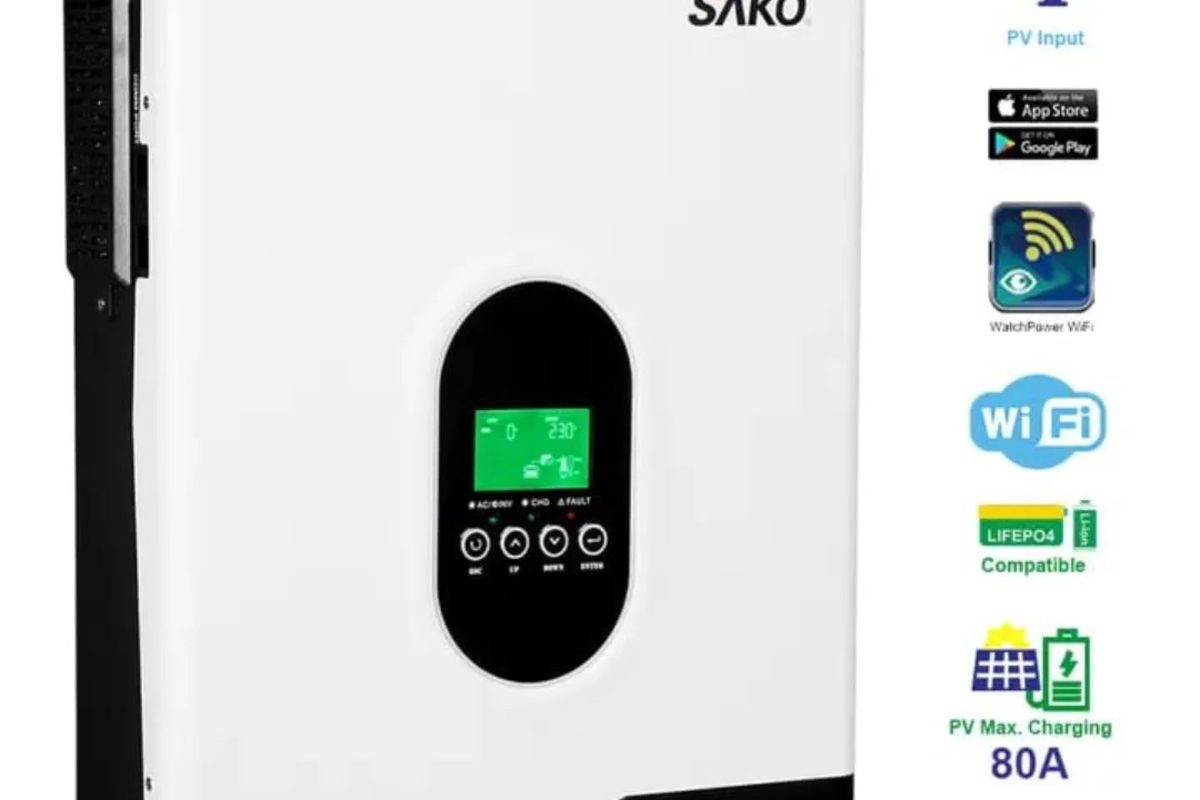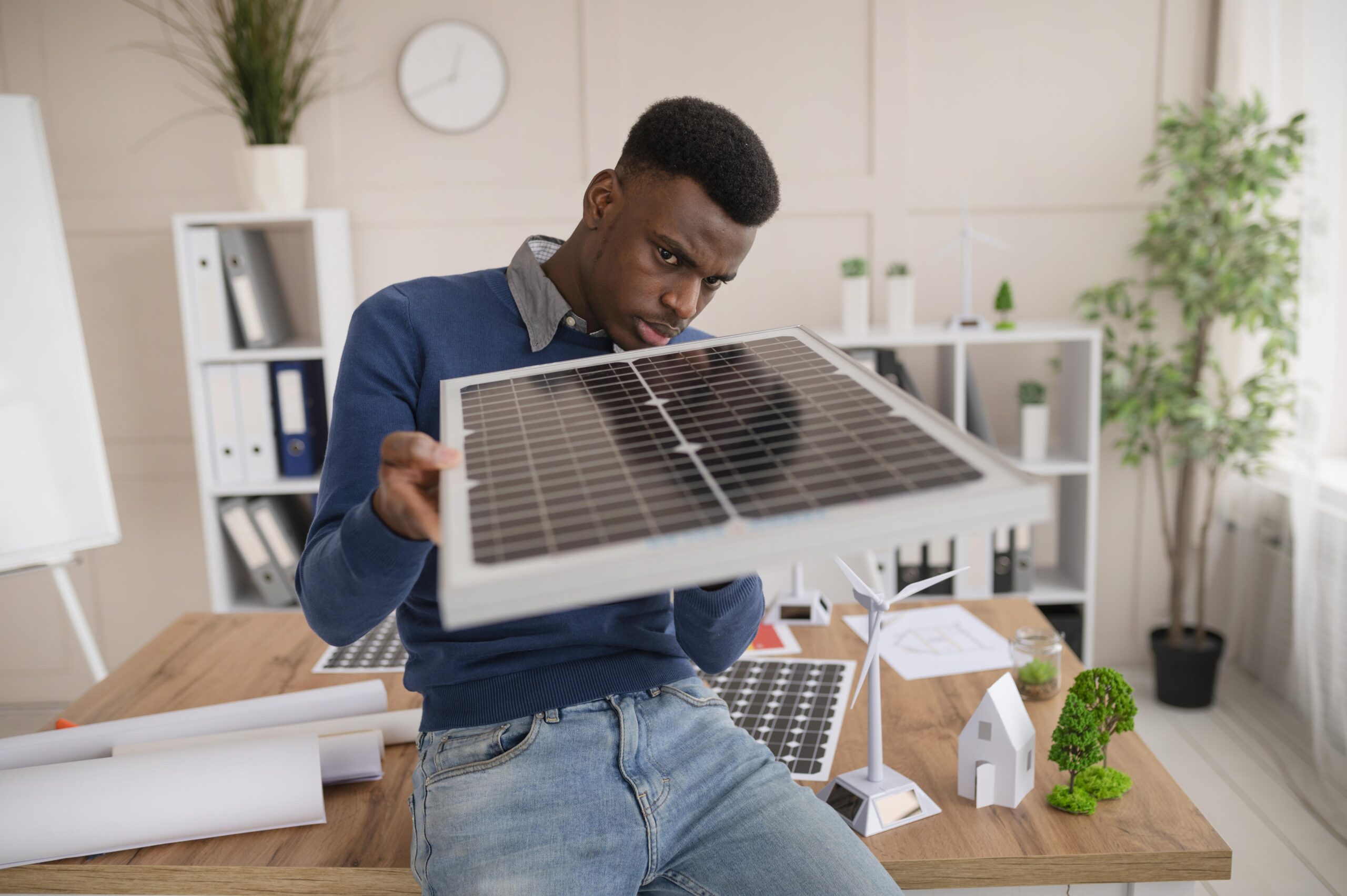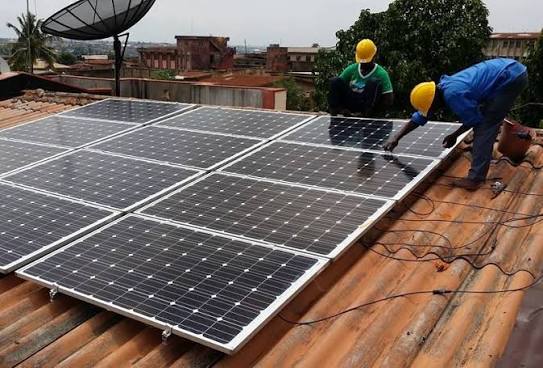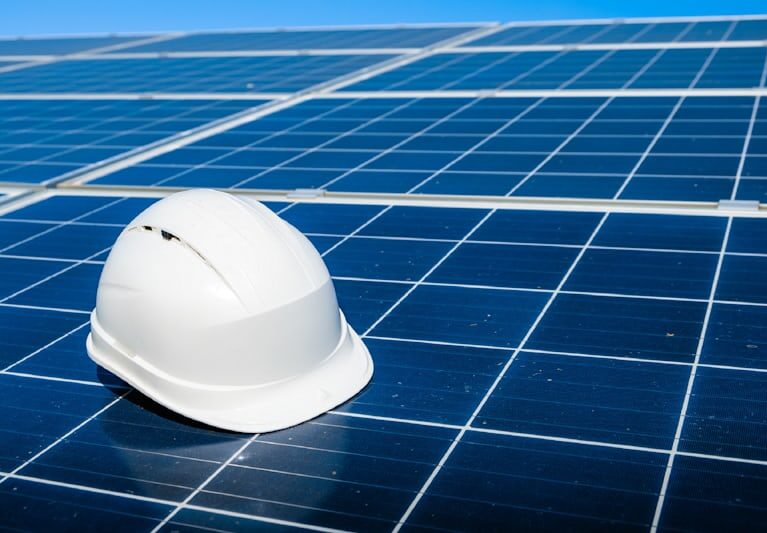Cheapest Solar Inverters You Can Buy in Nigeria (2025 Guide)
Anyone currently living in Nigeria already knows the full gist of what we are going through. NEPA is still very much unreliable, as they’ve always been. To make things worse, the generator that we’ve been managing is now too expensive to run; a liter of fuel is now around ₦900 per liter due to the removal of fuel subsidy in 2023.
So, if you are running a generator in present-day Nigeria, it is like throwing money into a bottomless pit. Because of these reasons, so many Nigerians are now looking towards solar as the only means of avoiding this electricity pandemic that is currently ravaging the country.
But for you to effectively build a solar system, having an inverter is non-negotiable. It is one of the most important parts of the trinity of having a functional solar system, with solar panels and batteries being the others.
But for this blog post, we will focus mainly on solar inverters. When buying an inverter, you shouldn’t go for just any inverter on the market. You need something that’s top quality yet very affordable.
You do not need to break the bank to get a top-quality inverter, and that’s exactly what we are going to discuss in this article: the cheapest solar inverters you can buy in Nigeria right now, how much these inverters are going to cost you, and certain things you should put into consideration before you buy them. Provided you are trying to power your home with a solar system, this blog post will help you buy the right solar inverter; trust us.
What Exactly Does an Inverter Do?
We’ll break down the job of an inverter to you in a nutshell. If your solar panels get sunlight, it usually turns this sunlight into DC power (direct current).
Now, the appliances that you have at home, like your TV, fridge, fan, and pumping machine, do not make use of the DC power gotten directly from the sunshine.
What they make use of is the AC power (alternating current). This is the same type of power that you get from NEPA and your generator.
Now, this is exactly where your inverter comes in. What the inverter does is help convert the DC to AC. Once this conversion is done, the appliances in your home will begin to run smoothly.
So, without an inverter, your solar system is almost useless. It’s just like when you have fuel without a generator. So, you see, it is very important for you to get the right inverter; if not, you are not going to enjoy your solar system.
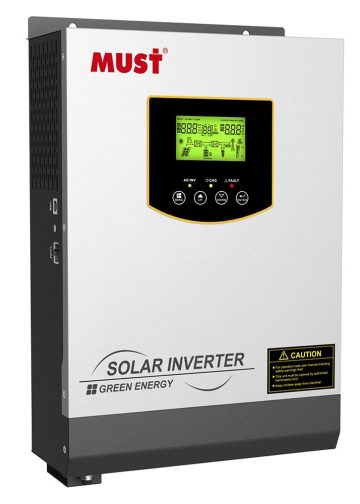
Cheapest Solar Inverters You Can Buy in Nigeria (2025 Guide)
Can an Inverter Be Cheap but Good?
Whenever a Nigerian searches for something cheap, like “cheap solar inverter,” they are not actually saying that they want something that has the lowest price; that’s far from it. They want something that is very affordable but is also strong enough to serve them very well.
If you buy something cheap that ends up dying in just 3 months, it is ridiculous. It’s more like a waste of money, and nobody would want such. That’s why, before you decide to buy, some things make an inverter cheap but still worth it:
- Pure sine wave output: If the inverter has a pure sine wave output, then just know that it is very much safer for your gadgets than when you buy a modified sine wave.
- Basic protections: Your cheap inverter should come with some basic protections that would guard it against things like overload, short circuit, overheating, and wrong battery connection.
- Warranty: It should come with at least one year of warranty.
- Spare parts and service availability: If it develops any fault along the way, you shouldn’t have any issues repairing it.
Prices of Cheap Solar Inverters in Nigeria (2025)
In the last two years, the prices of solar inverters have actually gone up. However, there are still so many affordable solar inverters that you can buy in 2025:
- Small inverters (1 kVA–1.5kVA) → ₦90,000–₦120,000. These particular types of inverters are quite affordable. They are very good for your lights, fans, charging phones, and maybe a small TV. If you are a student or someone in a single room, this inverter should do just okay for you.
- Medium inverters (2 kVA–3 kVA) cost ₦190,000–₦250,000. This is another affordable one currently on the market. It works very well for small families and shop owners. It can carry laptops and printers; it is also able to carry a small-sized fridge.
- Bigger inverters (3.5 kVA–5kVA) cost ₦250,000–₦500,000. This particular inverter is more suitable for those who have larger homes with lots of rooms. It can easily handle your fridge, freezers, pumping machines, and even one small AC.
- Heavy-duty inverters (above 5 kVA) cost ₦500,000 and above. These inverters are specially designed for people who are powering full houses, hotels, or offices.
Please understand that these prices are just for inverters only. For you to have a complete solar system, you will still need to buy batteries and panels, and also pay for installations.
Examples of Affordable Inverters in Nigeria (2025)
There are a lot of inverter brands that you can easily buy in Nigeria. They’re available in places like Lagos and Abuja and online stores like Arenahub.org.
- Luminous 850 VA (12V) Around ₦60,000 – ₦100,000. This might appear basic, but it is very cool if you are a student or running a small kiosk.
- Prag 1.2 kVA (12V) Around ₦100,000. You can use it for lights, fans, and charging your phone.
- Mercury Spirit 2 kVA: ₦170,000 – ₦220,000. For those with small homes and offices, this is the right option for you.
- Prag 2.5 kVA (24V) ₦100,000 – ₦130,000. For families that need more power for their homes, they should go for this.
- Prag 3.5 – 5 kVA: ₦250,000 – ₦400,000. If you are trying to move from generators to a solar system, you should go for this size.
These brands we just mentioned are among the most available inverters out there. They might be cheap, but they are also very good inverters. If you are in Nigeria right now, you should go for any of them that fall within your budget.
Pros and Cons of Buying Cheap Inverters
Like everything, cheap inverters have their advantages and disadvantages.
Pros:
- They have lower costs, so they are a good start-up option for you.
- If you don’t really consume too much power, they’re perfect for you.
- If you are tired of the stress that comes with buying fuel and servicing your generator, you should consider them.
Cons:
- These inverters may not last as long as the premium brands, although the premium brands cost more.
- Some of these brands don’t really come with advanced protection like the premium brands.
- It might not be as efficient as you may want; this will indirectly cause you to lose some solar energy.
- When you start increasing the appliances you are using, you may have to upgrade the inverter so it can serve you better.
How to Avoid Wasting Money on Fake or Poor-Quality Inverters
Take this from us: there are a lot of fake products in the Nigerian market. You need to be extremely careful; if not, you might end up buying an inverter that won’t even last you up to 6 months. If you really want to avoid that, you need to:
- Buy from trusted suppliers like Arenahub.org. They’re very reliable, unlike when you buy from random market stalls that may be selling fake products.
- Check warranty: Every original solar product comes with a warranty. If the inverter you are buying did not come with a warranty, just know that it is a huge red flag. Do not buy; it is likely to be fake.
- Ask about spare parts and repairs: Can you fix it if it develops a fault? If you can’t find the spare parts, don’t buy it.
- Check the brand reputation: Luminous, Prag, and Mercury have already made their names. People know them, and they have spare parts in the market. It’s much better to buy from them than from brands we don’t know yet.
Why Cheap Inverters Are a Good First Step
We know it might be expensive for you to raise ₦1 million to run a full solar system, but we still believe that it is very much better for you to start with a cheap inverter. Here’s why we think so:
- You can decide to use NEPA and run it, or even use a battery. As time goes on, you can decide to expand it.
- Once you get a cheap inverter that is reliable, how much you depend on generators will drastically reduce. That way, you will save a lot of money from buying fuel.
- We also think that starting with a very good and cheap inverter will allow you to start getting comfortable with solar technology.
For instance, if you are a student and you install a ₦70,000 inverter in your room, you will no longer have to worry about generator noise, and you will say goodbye to buying fuel.
For a family, you can easily start with a ₦200,000 inverter; it will easily help to power your lights and fans. Later on, you can decide to add batteries and panels.
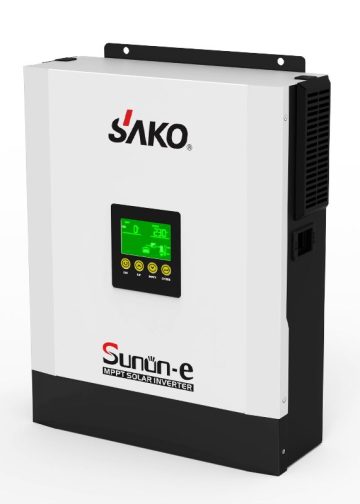
Cheapest Solar Inverters You Can Buy in Nigeria (2025 Guide)
FAQs About Cheap Solar Inverters in Nigeria
- Can I use a cheap inverter for my whole house?
Not really. Cheap inverters are there for smaller loads. If you want to power something like a 3-bedroom apartment, then you will definitely need a bigger system. - How long do cheap inverters last?
On average, if you make use of them very well, they might be able to last you for at least 2–4 years. If you are making use of the premium ones, they can last you for up to 7–10 years. - Can I upgrade later?
A lot of our customers started very small. Now that they’ve expanded, they’re adding more batteries, panels, and even bigger inverters. You too can take a leaf from them.
Final Thoughts
If you plan on switching to solar, you need to look beyond just going for products you think are fancy. You should be more focused on solar products that will serve you while being within your budget, too.
In 2025, so many Nigerians are now tired of wasting huge amounts of money on fuel every day. If you are even able to buy a ₦70,000 inverter, it can actually save you a lot of money every day.
If you are ready to take this step, we will help you get the perfect inverter for you. Our main goal is to make sure that every Nigerian is able to go solar.
We cannot continue to depend on NEPA; they’re way too unreliable and inconsistent. The removal of fuel subsidy has also made it difficult for an average Nigerian to buy fuel. At this point in time, we shouldn’t see solar as a luxury anymore; it is an absolute necessity.
 English
English
 French
French
 German
German
 Italian
Italian

